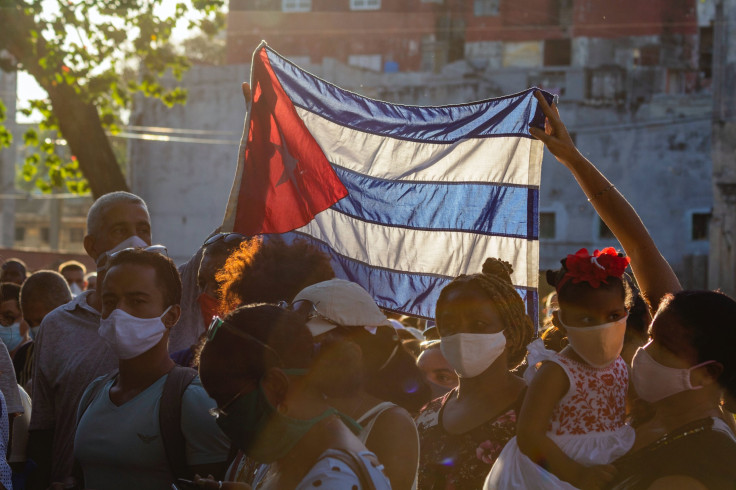
In a rare decision, Cuba released this week an imprisoned independent journalist, but did so under the condition that he exile himself in the United States, something that has already happened.
Lázaro Yuri Valle Roca had been in prison since June 2021 after reporting on a protest in Old Havana. He had received a five-year sentence for disseminating "enemy propaganda" and "resisting authorities."
According to a report by the Miami Herald, his release was a result of negotiations with U.S. authorities. Cuban officials told his wife that he would be able to be released if he left the country for good.
Normando Hernandez, the director of the Cuban Institute for Freedom of Expression and the Press, said that negotiations took several months. "It was difficult because Yuri didn't want to leave at first. We are deeply happy about his release; he was a journalist who was unjustly imprisoned, but we repudiate the conditions for his release. It is an exile," he told the outlet.
Valle Roca arrived at the Miami International Airport Wednesday morning. From there, he will travel to Philadelphia to reunite with family members. He reportedly suffered degrading treatment while in prison and his health has deteriorated.
His case had been mentioned by the State Department in its 2022 report on the situation of human rights around the world. "Valle Roca had no communications with his family or lawyer for more than 100 days, and he went on a hunger strike but stopped due to kidney failure," reads a passage of the report. It is unclear whether his was an isolated case or part of a larger trend by the Miguel Diaz-Canel government.
Authorities estimate Cuba still holds about 1,000 political prisoners, with new violations against human rights being denounced regularly. The Cuban Observatory of Human Rights (OCDH) said this week that the regime conducted at least 360 actions against the civil population, with 77 being arbitrary detentions.
The organization mentioned 50 claims by political and regular prisoners as well as their family members. It also listed the "illegal withholding of activists in their residencies, threats, abuses against political prisoners, police citations, trials, fines and police brutality."
"As popular discontent increases as a result of ongoing hunger, blackouts and lack of freedoms, government repression increases as well. Recent protests in cities like Cienfuegos and the preemptive militarization of other areas are a testament to Cuba's exceptionality without any reaction from the international community," the body added.
© 2025 Latin Times. All rights reserved. Do not reproduce without permission.




